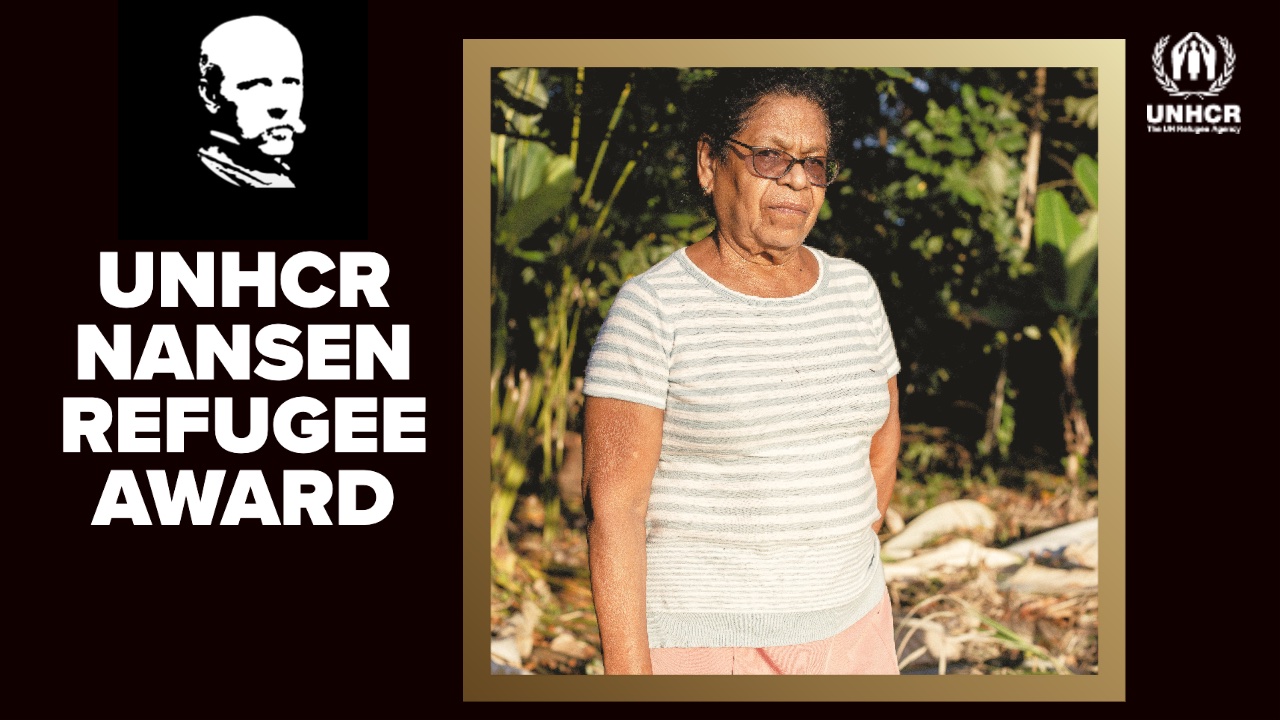Japanese vision team brings Azeri lives into focus

Japanese vision team brings Azeri lives into focus
Valida Aliyeva is consumed by a passion for reading. At 64 years old, she explains: "I’ve read every book in our local library!"
But when she lost her glasses four years ago, the displaced Azeri grandmother’s world was reduced to a blur in which she could neither read nor even see faces close-up.
Then, in May, something life-changing happened: a team of optometrists from Japan came to this city in western Azerbaijan to provide eye tests and give residents the glasses they needed – Aliyeva among them.
“I plan to start reading again as soon as I get home – but first, I want to see my grandchildren up close!"
Lining up for the eye clinic in the apartment complex where she lives with hundreds of other families, she receives a pair of purple-framed spectacles that bring her world back into sharp focus.
“I’m so happy,” she says, joyfully. “I plan to start reading again as soon as I get home – but first, I just want to see my grandchildren up close!"
For a dozen years, optometrist Akio Kanai has been travelling to Azerbaijan with a team of specialists to help displaced Azeris, up to a million of whom were driven from their homes during the conflict over Nagorno Karabakh in the late 1980s and early 1990s.

Many are living in poverty and struggle to access proper healthcare and treatment. Many families also live in huts or shanty towns in rural Azerbaijan.
“A pair of glasses will help people to have a better quality of life, can assist them to become independent, learn more,” says Kanai, a former winner of the prestigious Nansen Refugee Award. “Actually, without the glasses, I don’t know how you can live your life."
The team of eight qualified optometrists from Kanai’s company, Fuji Optical Co. Ltd, work quickly during the day, conducting hundreds of eye tests and distributing glasses to residents of the city’s new housing estates completed last year, which stand in stark contrast to the farming areas surrounding them.
The Japanese team have become minor celebrities here and are welcomed by the Azeri communities and local authorities alike. During their six-day visit, the team screened 2,882 people and distributed 2,433 pairs of glasses. A further 141 pairs were to be sent later from Japan.
"Some people shake hands, they kiss you. I see all kinds of gratitude. It does make it worthwhile.”
“It’s very busy during the day,” says Kanai, chuckling, as the UNHCR team works to manage the crowds outside the door of one temporary clinic. “A lot of people say 'çox sağ ol', which I know means 'thank you'. Some people shake hands, they kiss you. I see all kinds of gratitude. It does make it worthwhile.”
Among those helped at one of the field clinics is Yalchin Aghayev, a teacher who fled Nagorno Karabakh with his family at age 17. He has struggled since childhood with an uncorrected eye problem.
“I’m a history teacher and I always look at maps. Often I point to the wrong place and cannot see my students clearly,” he explains at the clinic, where the specialist team examines his eyes thoroughly and prescribes lenses. “I thought life had to be like this. That the world was blurry all the time and vision consisted of this only.”
As his glasses are fitted, relief washes over Aghayev’s face. “Before wearing glasses, life seemed dark, as if it were night time. If I hadn’t met Dr. Kanai, I would have stayed in the darkness. After wearing these glasses, my vision improved and my whole life became brighter.”
Kanai was honoured with the 2006 Nansen Refugee Award, given annually by UNHCR to an individual, group or organization in recognition of outstanding service to the cause of refugees, displaced or stateless people.
Forcibly displaced himself from the northern Pacific island of Sakhalin during the turmoil at the end of World War II, Kanai has committed himself since 1983 to working with people uprooted by conflict. It is estimated that more than 140,000 refugees and internally displaced people now have improved eyesight thanks to his efforts.
“Winning the award inspired me and pushed me to continue with the service."
“Winning the award inspired me and pushed me to continue with the service. I’m 74 now, but I feel I have energy left and it would be good for me to work for these people. So the award really gave me that power to keep going.’
And his legacy is set to continue as his two sons have followed in his footsteps, becoming qualified optometrists and joining the doctor on his annual vision missions. Kanai reflects the spirit of Nansen award winners – courageous, determined and committed to improving the lives of those displaced by war and conflict.
The winner of the 2016 Nansen Refugee Award will be announced on September 6, with the ceremony taking place on October 3 at the Bâtiment Des Forces Motrices in Geneva.














